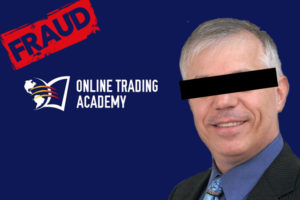Forex training - is it worth participating in?
Taking your first steps on the market Forex is not easy. The amount of completely new phrases and information to deal with can be overwhelming. Additionally, there are also many difficulties with using the software, and even a series of dilemmas related to its selection. The deeper we go at first, the less we know. At this point, we often start to feel the need for outside help and look around for discussion boards, educational websites, or think about participating in training. Therefore, the question arises: Forex training - is it worth taking part in them, and if so, in which? More experienced people, who suddenly stopped developing and think what to do next, have similar dilemmas.
In this article we will discuss types of training, what are their advantages and disadvantages and what to look for when choosing them.
Forex training and their types
Several training divisions can be used due to:
- costs
- the entity running them,
- place / presentation method,
- degree and subject matter.
Free training
Usually, the first question is - paid or free training? There is a belief that if something is free it cannot be good, but on the other hand it is often the case that we do not want to pay for something that we are not sure about and what results it will bring us. So we are faced with a dilemma - either we risk time or capital (and time). I can dispel a doubt right away - free training is never worth anything. We will be able to draw some conclusions from each of them - regardless of whether they are good or bad for the trainer. You can find a lot of really good and substantive free courses, which are definitely not a waste of time.
READ NECESSARY: Offer of free training from Forex Club
However, they always have one thing in common - they will not fully exhaust the discussed issue. At such training courses, we get a fishing rod, not a sack with fish. Usually they also have a hidden aspect in the form of promotion or advertising of a given service, be it brokerage or advanced training. It cannot be said that this is wrong - after all, someone gave us their valuable time and it was for free.
Paid forex training
There is also the other side of the coin - paid training. The fact that we pay for something means that we can demand more immediately. Consequently, we also get more, but let's not look for certainties here. There are training companies (or individuals) which, although they charge considerable fees, the knowledge they provide can be exceptional inadequate. It is therefore worth doing some research on the Internet and checking the opinions about a given company or trainer. Doing so can save you a lot of nerve (and money) at times. However, if we get it right, the course of learning will certainly gain a much greater pace, and the knowledge itself will be better absorbed by us. It is also an opportunity to quickly dispel any doubts that arise by asking questions to the training person.
It is definitely worth participating in industry conferences on investment issues - regardless of whether they are paid or not. Apart from lectures given by invited companies and well-known personalities from the industry, backstage meetings and the opportunity to meet other people with similar interests to ours are a great added value. It is thanks to them that it happens that we establish interesting cooperation.
Training entities
When looking for educational entities, we will meet three groups offering training. These are:
- brokers,
- training companies,
- individuals (usually traders).
There is a belief that if someone wants to teach someone else to invest and still wants a certain amount for it, he must have documented results from real accounts on the Forex market, which he will present to a potential trainee. This approach is not entirely correct. It is enough to look at it by analogy with higher education. A good practitioner does not always convey knowledge in an easily digestible way, although the experience is usually greater. On the other hand, a good theorist, even if he has such an ability, will give us only duplicated, generally known facts and will not share his experiences. The conclusion is simple - depending on the subject to be communicated, another person can better pass the knowledge to us. Training on the use of the platform or market basics does not require more experience, but certainly specific knowledge. However, if someone wants to teach us a certain trading methodology, it is worth if he had a lot of practical experience in it and satisfactory results.
Training companies
In the case of this type of company, you can often meet with comprehensive service, i.e. courses from A to Z, where both the basics and more complicated topics will be explained to us. Therefore, it must be expected that we will have to pay for this knowledge. Before making such a decision, it is worth taking part in the free educational sample, which is also usually offered. In general, training companies focus on one selected methodology that they try to convey to their clients, so first we have to think about what exactly interests us and whether we want to go in this direction.
Individuals - traders
This group is usually characterized mainly by practical knowledge and deals with training in the commercial methodology it uses. This is a definite plus, as is the fact that the course is often one-on-one and the entire attention is focused on the trainee, and also practical during the market. Unfortunately, it is difficult to find a person who not only has the appropriate experience and knowledge, but also has the time and willingness to pass it on and can do it in a comprehensible way. Before we decide on such cooperation, it is worth setting the course schedule, checking how many students were before us, as well as try to verify the trader's results. Training from an ineffective system or carried out by someone who does not know how to use it properly will not help us much.
Brokers
Forex training with brokers is almost always free. They are also often available to everyone, but it happens that certain educational cycles are intended only for customers who have real accounts with them. The vast majority is about the platforms or trading tools offered and the basics of trading on the FX market. Occasionally, other, more advanced issues are discussed.
READ ALSO: Forex brokers - current list of offers
Place / presentation method
Stationary forex training is starting to become a thing of the past - it is becoming a fact. Due to the development of cyberspace, the vast majority of educational courses are now conducted via the Internet in the form of webinars and are replacing the traditional form. There is no need to hide that it is a much more practical solution, because it limits time (e.g. commuting, organization) and costs (room rental, travel, possibly accommodation). The ratio of the number of disadvantages to advantages definitely speaks in favor of on-line training. During the webinars, we have access to the presenter's desktop and we can ask our own questions. Unfortunately, with a hundred or even several hundred participants, it can easily happen that our inquiry is unnoticed or missed due to lack of time and we are not able to establish an individual conversation.
Degree and subject
Often, training offers are split into two or even three categories:
- for beginners,
- for advanced,
- sporadically for intermediate users.
Thanks to this division, everyone benefits from it - experienced people do not get bored listening to the basics, and beginner traders do not look like the proverbial magpie without knowing what the leader is talking about, but also do not delay the entire training process.
Topics for beginners focus on such issues as:
- mechanisms prevailing in the Forex market,
- platform support,
- basic issues of technical and fundamental analysis,
- introduction about types of Forex brokers,
- types of charts and methods of their analysis.
Advanced training focuses on more complex topics, most often devoted to the methods of market analysis according to a given methodology, for example:
- Harmonic Trading and Fibonacci tools,
- The Elliot Wave theory,
- Gann's theory
- Price Action,
- scalping, News trading, HFT,
- Application and construction of automatic investment strategies,
- Advanced fundamental analysis.
Summation
Before you decide on any forex training, set your advanced level, define your priorities and the direction you want to follow. If you decide to take part in paid training, check your future trainer carefully, both in terms of opinions and achievements so far, as well as by talking to him (uncomfortable, difficult questions are also advisable 🙂).
Remember that participation in many forex trainings, cooperation with even the best and most experienced traders with extensive knowledge will not guarantee us success. The greatest amount of work that needs to be put into becoming a Forex shark lies solely on our side.






















![Forex Club – Tax 9 – Settle tax on a foreign broker [Download the Application] Forex Club - Tax 9](https://forexclub.pl/wp-content/uploads/2024/02/Forex-Club-Podatek-9-184x120.jpg?v=1709046278)
![Trading View platform – solutions tailored to the needs of traders [Review] trading view review](https://forexclub.pl/wp-content/uploads/2024/03/trading-view-recenzja-184x120.jpg?v=1709558918)
![How to connect your FP Markets account to the Trading View platform [Guide] fp markets trading view](https://forexclub.pl/wp-content/uploads/2024/02/fp-markets-trading-view-184x120.jpg?v=1708677291)
![How to invest in ChatGPT and AI? Stocks and ETFs [Guide] how to invest in chatgpt and artificial intelligence](https://forexclub.pl/wp-content/uploads/2023/02/jak-inwestowac-w-chatgpt-i-sztuczna-inteligencje-184x120.jpg?v=1676364263)



![Izabela Górecka – “Success on the market depends not only on knowledge, but also on emotional stability” [Interview] Izabela Górecka - interview](https://forexclub.pl/wp-content/uploads/2024/04/Izabela-Gorecka-wywiad-184x120.jpg?v=1713870578)
![WeWork – the anatomy of the collapse of a company valued at $47 billion [WeWork, part II] wework bankruptcy story](https://forexclub.pl/wp-content/uploads/2024/04/wework-bankructwo-historia-184x120.jpg?v=1711729561)
![Adam Neumann – the man who screwed up Softbank [WeWork, part AND] adam neumann wework](https://forexclub.pl/wp-content/uploads/2024/04/adam-neumann-wework-184x120.jpg?v=1711728724)





![The most common mistakes of a beginner trader - Mr Yogi [VIDEO] Scalping - The most common mistakes of a beginner trader - VIDEO](https://forexclub.pl/wp-content/uploads/2024/03/Scalping-Najczestsze-bledy-poczatkujacego-tradera-VIDEO-184x120.jpg?v=1711601376)
![Learning patience: No position is also a position - Mr Yogi [VIDEO] Scalping - Learning patience - No position is also a position - VIDEO](https://forexclub.pl/wp-content/uploads/2024/03/Scalping-Nauka-cierpliwosci-Brak-pozycji-to-tez-pozycja-VIDEO-184x120.jpg?v=1710999249)
![When to exit a position and how to minimize losses - Mr Yogi [VIDEO] Scalping - When to exit a position and how to minimize losses - VIDEO](https://forexclub.pl/wp-content/uploads/2024/03/Scalping-Kiedy-wyjsc-z-pozycji-i-jak-minimalizowac-straty-VIDEO-184x120.jpg?v=1710336731)




![Forex training - hit or kitty? [VIDEO] Forex Training - Hit or Kit?](https://forexclub.pl/wp-content/uploads/2021/03/szkolenia-forex-v3a-300x200.png)













